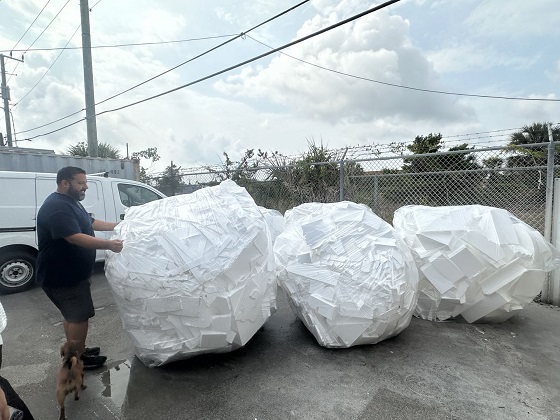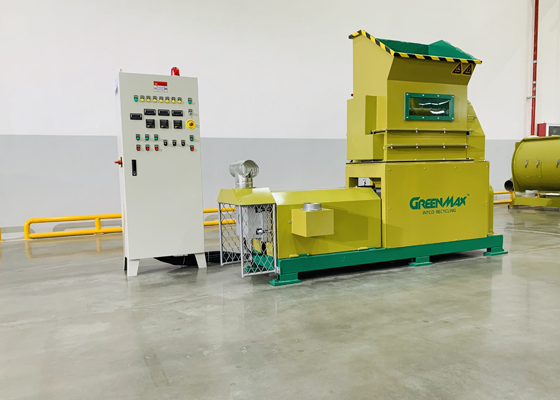A Thorough Analysis of The Ban on Polystyrene Packaging in Western Australia
Western Australia (WA) is taking considerable steps to combat plastic pollution by implementing stringent restrictions on polystyrene and various other expanded polystyrene items. These bans become part of a wider effort to protect the environment and wildlife from the harmful impacts of plastic waste. Polystyrene, commonly known as expanded polystyrene (EPS), is a light-weight material widely utilized in product packaging and food service industries. While it offers ease and cost-effectiveness, its ecological effect has actually brought about increasing laws and straight-out bans in many regions for single-use EPS items.
In this blog, we will certainly break down the WA bans on polystyrene items, discuss the factors behind these bans, and offer functional suggestions on how businesses and consumers can abide by the new guidelines. We will also explore the crucial role GREENMAX plays in ensuring responsible waste management and product stewardship, motivating everybody to take possession of the polystyrene packaging waste they create. After all, expanded polystyrene is 100% recyclable, quick to recycle and easily converted into new items.

The Role of Polystyrene: Balancing Necessity and Environmental Responsibility
Before delving into the specifics of the WA bans, it's necessary to acknowledge that polystyrene serves a valuable purpose in different applications. Its light-weight and insulating properties make it ideal for protecting vulnerable items, preserving the freshness of perishable goods like seafood, and even guarding lives in products such as bike headgears and childcare seats. These are areas where the performance of polystyrene stays unmatched by several alternatives.
However, the properties that make polystyrene so useful also contribute to its ecological problems. It is lightweight and can end up as litter when it is disposed of irresponsibly. While polystyrene has undeniable benefits, particularly in applications where safety and conservation are extremely important, there is a growing requirement to discover sustainable options where possible and handle its disposal responsibly when alternatives are not viable.
Review of WA(Western Australia) Bans on Polystyrene Products
Expanded Polystyrene Foodware and Trays
Prohibited from 1 July 2022, the initial phase of the ban came into effect on 1 July 2022, targeting non reusable food containers and trays made from expanded polystyrene.
Expanded Ban from 1 September 2023
Building on the initial ban, the bans were extended on 1 September 2023 to consist of expanded polystyrene trays utilized for raw meat and seafood, even those that are pre-packaged. This expansion intended to decrease the environmental influence of single-use polystyrene products.
Loose-Fill Product Packaging Ban from 1 September 2023
Loose-fill packaging made from expanded polystyrene, such as packaging peanuts and beads, was prohibited starting 1 September 2023. These materials, frequently utilized for cushioning items during shipping, are a common source of environmental pollution.
Moulded Packaging Ban from 1 July 2025
The final phase of the ban targets moulded or product packaging made from any form of expanded foam. This ban, effective from 1 July 2025, applies to a wide range of products, consisting of those made from EPS, expanded polyethylene (EPE), expanded polypropylene (EPP), and ethylene-vinyl acetate (EVA).
Exceptions:
Packaging for products weighing more than 45 kg is exempt from the ban, along with fragile items that require protective packaging meeting specific standards.
Industry-related exemptions are also in place, allowing for the continued use of certain types of packaging.
Packaging used in the building and construction industry is not affected by the ban.
Products manufactured before 1 March 2025 are exempt.
Flexible plastic wraps and sleeves made from expanded plastics are allowed.
Fresh produce boxes and bulk cold meal delivery packaging that can be collected and reused by the business are not subject to the ban.
Packaging retained by a business after the professional installation of consumer goods is exempt.
Packaging that is a permanent part of a product’s carry case or kit is not included in the ban.
Specialist packaging for medical or scientific applications, such as organ transport or pharmaceuticals, is permitted.
Expanded plastic that is integral to a product, like bean bag fill or surfboards, remains exempt.
Moulded expanded plastic packaging used to repackage repaired goods supplied before the enforcement date is also exempt.
Packaging sent between businesses as outlined in the government factsheet is not affected by the ban.

Tips for Conformity
Businesses and customers need to be proactive in understanding and adhering to these policies to avoid of a $5,000 penalty. Here are some practical steps to help you navigate the bans:
Audit Your Item Variety: Review your item range to recognize items that utilize expanded polystyrene product packaging. Make certain that any type of new orders or stock acquisitions abide by the current laws.
Communicate with Suppliers: Engage with your vendors to verify that they know the restrictions and are supplying certified product packaging services. For items that are excluded, make certain that you have the necessary documentation.
Enlighten Your Team: Ensure that your team is notified concerning the brand-new laws and comprehend their role in guaranteeing conformity. This consists of training on identifying non-compliant products and recognizing the appropriate procedures for taking care of them.
How does GREENMAX help with expanded polystyrene waste?
A professional recycling solution is provided by GREENMAX, where EPS waste can be disposed of for recycling. The collected EPS is processed and turned into products. These include, but not limited to building insulation for construction, helping to reduce the environmental impact of polystyrene waste.
